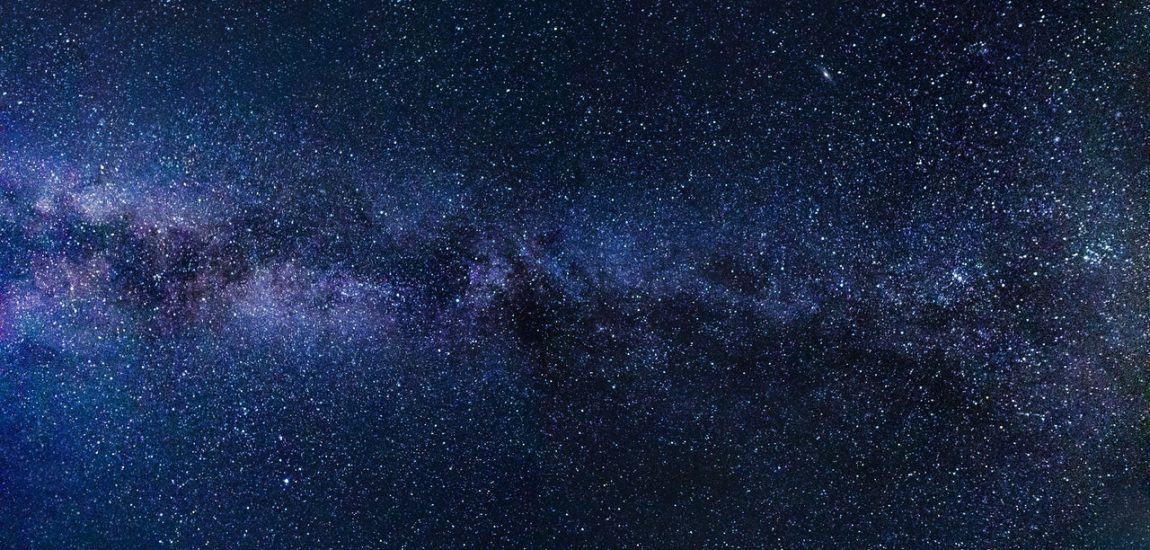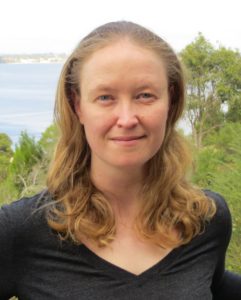
Dr Julie Prytulak – It’s deeply humbling

Dr Julie Prytulak is the 2017 Houtermans Awardee. Dr Prytulak shares her thoughts on what it feels like to become an award winning scientists, provides constructive advice on an important issue faced by Early-Career Scientists, and explains why she’d go down into the mantle instead of travelling through time.
This interview focuses on the interviewee, and therefore my own commentary is reduced to an absolute minimum, for now.
Sami: Thank you for agreeing to this interview. How does it feel to be the 2017 Houtermans awardee?
Julie: Surprising and humbling. It’s not just getting the award, it’s also knowing that 4 to 5 colleagues went through so much effort to nominate me. So yeah, it’s deeply humbling.
Sami: How would you describe yourself, professionally?
Julie: This is a hard question. As a geochemist, what do I say? Am I an isotope geochemist? Maybe, but I’ve also published papers without isotopes. Am I a high-temperature person? Maybe, but I’ve also worked on and published low-T geochemistry. I guess I’ll go with ‘someone that works on mantle melting and magmatic evolution’ To non-scientists I’d say I ask the question: Why, sadly, don’t we all have volcanoes in our back yards? I suppose I can say I work on how the planet evolves. That was a bit of a ramble!.
Sami: What is your current position?
Julie: I’m a Senior Lecturer at Imperial College, London (this means associate professor in the rest of the world).
Sami: What are your non-scientific hobbies?
Julie: Richard III. Whiskey tasting. Healthy doses of removing myself from humanity by hiking up in Scotland. Isolationism, that’s a hobby, right?
Sami: What do you identify as a major challenge to early-career scientists?
Julie: The seismic shift in mind-set required when that holy grail of a permanent position is obtained. We train as specialists during our PhD and postdoc years, but when we become members of faculty, there is little time for the lab. The specific technical skills we have worked so hard to perfect are unused. Instead, the name of the game is lecturing, grant proposals, management and administration. To say this is a different skill set is somewhat of an understatement.
Sami: Do you think we should we train postdocs for this epic shift in terms of the skills required for their future position(s)?
Julie: Yes, we should develop our postdocs in how to be faculty members. For example, if they wish, we can have them take on the responsibility of student supervision, and get them on committees. I know some will assume this is a thinly veiled excuse to pass on responsibilities to postdocs, but I assure you it’s not. They are not just our lab minions, and we should be honest with them about what academic life is like. It can be a bit of a shock. I mean, I was lucky because I had this training (although I didn’t realise it at the time) during my NERC fellowship in the MAGIC group (at Imperial). Mark and Tina gave me responsibility and input into the administration, finances and strategy of our isotope group – I began to understand underlying working of the academic machine – wasn’t completely repulsed. If you’re a postdoc who doesn’t like the life of a faculty member then it’s best to know this before signing a contract. A key thing, for example, is that if you really, really don’t like continually writing grants (or papers), then academia is not for you. Seriously.
Sami: You’re proposing we give them a flavour of the job they think they want, eh?
Julie: Yeah, yeah. Also, worth stating is the concept of picking your battles, and the power of using the word ‘no’. Both are super-important. Don’t just say yes to everything offered from your boss(es) or you’ll get swamped with an unbearable and unachievable amount of work.
Sami: Has the EAG or the Geochemical Society played a positive role in your professional development? Or person? If so, how?
Julie: Well they gave me an award, that helps! More seriously, their new journals are awesome, like Geochemical Perspectives Letters, and their travel bursaries are great for graduate students. The articles in Geochemical Perspectives are the best! They are a phenomenal teaching resource as they humanise a whole field. I.e. they provide a historical narrative to a specialist field of research, and a guide for graduate students to a sometimes confounding and ever-expanding amount of literature.
Sami: If you had a time machine and could witness any event, or see any period in geological time, what would you choose to see?
Julie: I take issue with the question, because a human witnessing something is a very short timescale. And if you’re not into stuff like impacts, then this is a problem. Flood basalts in large igneous provinces, which are super-cool, for example may erupt over millions of years. But if you are able to give me a time machine then surely, I could shrink into miniature size? If so, then you can also make me tough enough to survive the high pressure and temperature conditions within the planet. So I’d choose to witness incipient mantle melting. Then ride that wave to the surface (or react and freeze, whatever the case may be).
Sami: Melting in the upper or lower mantle? Or any tectonic setting?
Julie: I’m not picky, I’m a pretty relaxed person.
Sami: Fair enough. Thanks for agreeing to this interview, and a MASSIVE congratulations on the 2017 Houtermans Award!
